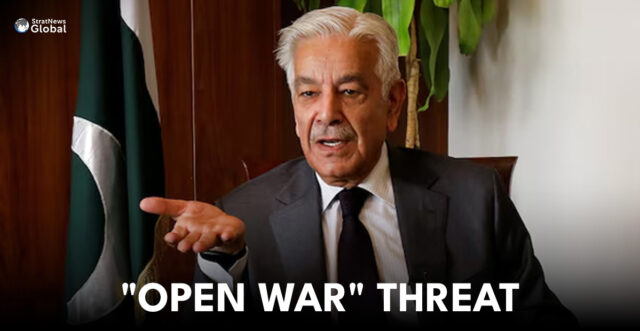Pakistan’s defence minister said on Saturday he believes Afghanistan seeks peace, but warned that failure to reach an agreement in the upcoming Istanbul talks could lead to “open war,” just days after both sides agreed to a ceasefire following deadly border clashes.
The talks in Istanbul, which began on Saturday, mark the latest attempt by Pakistan and Afghanistan to prevent a relapse into violence after the worst border fighting since the Taliban’s 2021 takeover of Kabul.
The talks are meant to devise a mechanism to enforce the Doha ceasefire longer term.
Khawaja Muhammad Asif said there had been no incidents in the four to five days since it was agreed, and both sides were complying with the truce.
“We have the option, if no agreement takes place, we have an open war with them,” he said in televised remarks from Pakistan. “But I saw that they want peace.”
The clashes erupted earlier this month after Islamabad demanded that the Taliban curb militants it says are attacking Pakistan from sanctuaries inside Afghanistan.
Pakistan launched airstrikes across the border and both sides exchanged heavy fire, killing dozens and prompting the closure of key crossings that remain shut.
Islamabad accuses Kabul of sheltering militants who target Pakistani forces. The Taliban rejects the charge and says Pakistan’s military operations violate Afghan sovereignty.
Ceasefire After Weeks Of Hostilities
The recent flare-up along the Pakistan-Afghanistan border has marked the most serious escalation between the two neighbours in years, underscoring the volatility that continues to define their relationship.
For weeks, heavy shelling and armed skirmishes unfolded near key border crossings, disrupting civilian life and forcing thousands to flee from frontline areas.
Both sides blamed each other for provoking the violence, which stemmed from long-standing disputes over fencing, border controls, and militant activity along the porous frontier.
Dozens of people, including security personnel and civilians, were killed in the clashes, while hundreds more were injured. Homes, markets, and essential infrastructure endured significant damage, heightening fears of a wider conflict if diplomacy failed to take hold.
The situation also threatened to derail broader regional stability, particularly as both nations struggle with economic challenges and rising security threats.
In an effort to halt the fighting, Qatar and Turkey stepped in to mediate, convening urgent discussions that ultimately resulted in a temporary ceasefire agreement.
The truce offers a crucial pause in hostilities, giving Islamabad and Kabul an opportunity to pursue diplomatic dialogue and reduce tensions.
However, analysts caution that without actionable commitments and trust-building measures, the fragile calm could quickly unravel.
(With inputs from Reuters)





